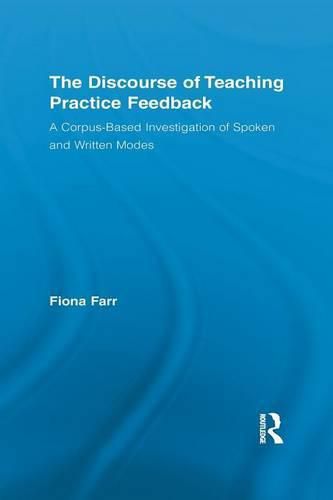Readings Newsletter
Become a Readings Member to make your shopping experience even easier.
Sign in or sign up for free!
You’re not far away from qualifying for FREE standard shipping within Australia
You’ve qualified for FREE standard shipping within Australia
The cart is loading…






In this book, Farr examines the spoken and written language of post-observation teaching-practice feedback on teacher education programs. To do so, she draws upon theories from discourse analysis, conversation analysis, and pragmatics to frame the analysis of feedback meetings and written tutor reports, which are then examined using comparative quantitative and qualitative corpus-based techniques. The overall aim is to determine the defining characteristics of this genre, focusing especially on pragmatic factors, with the ultimate goal of investigating the salient aspects responsible for making feedback both effective and affective. Farr’s research draws upon a spoken corpus of feedback interactions and a written corpus of tutor reports from language teacher education and is also strongly informed by data in the form of diary reflections and questionnaire responses from student teachers and questionnaire responses from the relevant tutors.
$9.00 standard shipping within Australia
FREE standard shipping within Australia for orders over $100.00
Express & International shipping calculated at checkout
In this book, Farr examines the spoken and written language of post-observation teaching-practice feedback on teacher education programs. To do so, she draws upon theories from discourse analysis, conversation analysis, and pragmatics to frame the analysis of feedback meetings and written tutor reports, which are then examined using comparative quantitative and qualitative corpus-based techniques. The overall aim is to determine the defining characteristics of this genre, focusing especially on pragmatic factors, with the ultimate goal of investigating the salient aspects responsible for making feedback both effective and affective. Farr’s research draws upon a spoken corpus of feedback interactions and a written corpus of tutor reports from language teacher education and is also strongly informed by data in the form of diary reflections and questionnaire responses from student teachers and questionnaire responses from the relevant tutors.